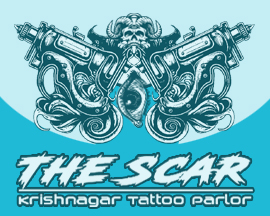Tattoo As A Form Of Self-Empowerment And Embracing Identity Through Ink
In recent years, tattoos have evolved from being viewed as rebellious or taboo to becoming a powerful form of self-expression and identity. More than just body art, tattoos serve as a canvas on which individuals can convey their stories, struggles, beliefs, and personal triumphs. For many, the act of getting tattooed is a deeply personal and empowering experience, symbolizing self-ownership and the ability to take control of one’s body and narrative.
The Personal Power of Choice
At its core, tattooing is about choice—choosing how to adorn the body and tell a personal story in a way that no one else can. For many, getting a tattoo signifies reclaiming agency over their body. In a world where societal expectations often dictate physical appearances and self-worth, tattoos allow individuals to take back control and express their authentic selves without apology. This act of deliberate body modification can empower individuals who may have struggled with feeling unheard or marginalized in other areas of their lives.
For some, tattoos mark milestones in personal growth or symbolize a victory over adversity. Survivors of illness, trauma, or hardship often choose tattoos as a way to honor their experiences and assert their resilience. These visual markers of their journeys serve as daily reminders of their strength and ability to overcome challenges. The act of choosing a permanent design that speaks to one’s values or identity can be incredibly empowering, reinforcing self-acceptance and confidence.
Tattoos and Body Autonomy
Body autonomy—the right to make decisions about one’s body without interference—is central to the tattooing process. In a world where societal norms often pressure individuals to conform to certain beauty standards, getting tattooed is a bold assertion of one's right to define their own appearance. For women, in particular, tattoos can symbolize freedom from traditional gender roles or beauty ideals that demand conformity. Tattoos provide a visual representation of one’s ownership over their body, challenging societal expectations and promoting body positivity.
Furthermore, tattoos often provide an opportunity for individuals to reclaim their bodies after difficult experiences such as surgeries, scars, or body image struggles. Tattooing over scars, for example, can be a transformative experience, allowing individuals to turn something once seen as negative into a symbol of beauty and empowerment. This reclamation of the body can be a healing and liberating process for those who seek to redefine their relationship with their physical self.
Empowerment Through Pain and Transformation
The physical process of getting a tattoo is often seen as a rite of passage—a deliberate embrace of pain as part of the creative journey. For many, enduring the discomfort of tattooing becomes a metaphor for overcoming life’s challenges. The pain becomes a symbolic part of the transformation, leading to an outcome that reflects resilience, growth, and personal empowerment. In this way, tattoos can be both a physical and emotional healing process.
The permanency of a tattoo further enhances its significance. Unlike fleeting beauty trends or temporary forms of expression, tattoos are lasting imprints on the body. This permanence represents an unshakeable commitment to one’s identity, beliefs, or experiences. It is an enduring form of self-empowerment, allowing individuals to affirm their autonomy and personal power every time they look at their tattoo.
Breaking Cultural and Social Boundaries
Tattoos have historically been associated with subcultures or groups on the fringes of society. Today, they have become a universal form of self-expression that crosses gender, cultural, and social lines. The shift in societal perception of tattoos has empowered many individuals to embrace body art as part of their identity, regardless of background or social status.
In many cultures, tattoos have long been used to convey status, spiritual beliefs, or rites of passage. In modern times, the act of getting tattooed has taken on a new layer of empowerment as people challenge cultural stigmas associated with body art. Tattoos are now embraced by people from all walks of life, from professionals to artists, as a valid form of self-expression. This normalization of tattoos has allowed individuals to feel more comfortable in asserting their uniqueness, paving the way for greater personal and collective empowerment.
Self-Empowerment Through Storytelling
Tattoos offer a unique medium for storytelling, allowing individuals to carry their personal narratives, memories, and values with them wherever they go. For some, a tattoo may represent a loved one, a life-changing experience, or a deeply held belief. The choice to tell these stories through tattoos can empower individuals by helping them visually articulate their identity.
The significance of these tattoos lies in their ability to connect the inner self with the external world. Each tattoo becomes a form of communication, a statement that reflects the wearer’s journey, struggles, and triumphs. It allows individuals to express their history and values in a permanent, visible way, creating a strong sense of empowerment and ownership over one’s personal narrative.
Conclusion: Tattoos as a Symbol of Self-Liberation
Tattoos are far more than just decorative designs on skin. For many, they are powerful symbols of self-empowerment, body autonomy, and personal storytelling. Tattoos provide an opportunity for individuals to assert control over their bodies, celebrate their identities, and challenge societal expectations. Whether it’s to mark a significant life event, reclaim one’s body after trauma, or simply assert individuality, the act of getting a tattoo can be a profound and transformative experience. Through the art of tattooing, people are able to claim their personal power and express their true selves, one inked story at a time.
Need A Tattoo?
Call- 9475228242 / 9474410022

